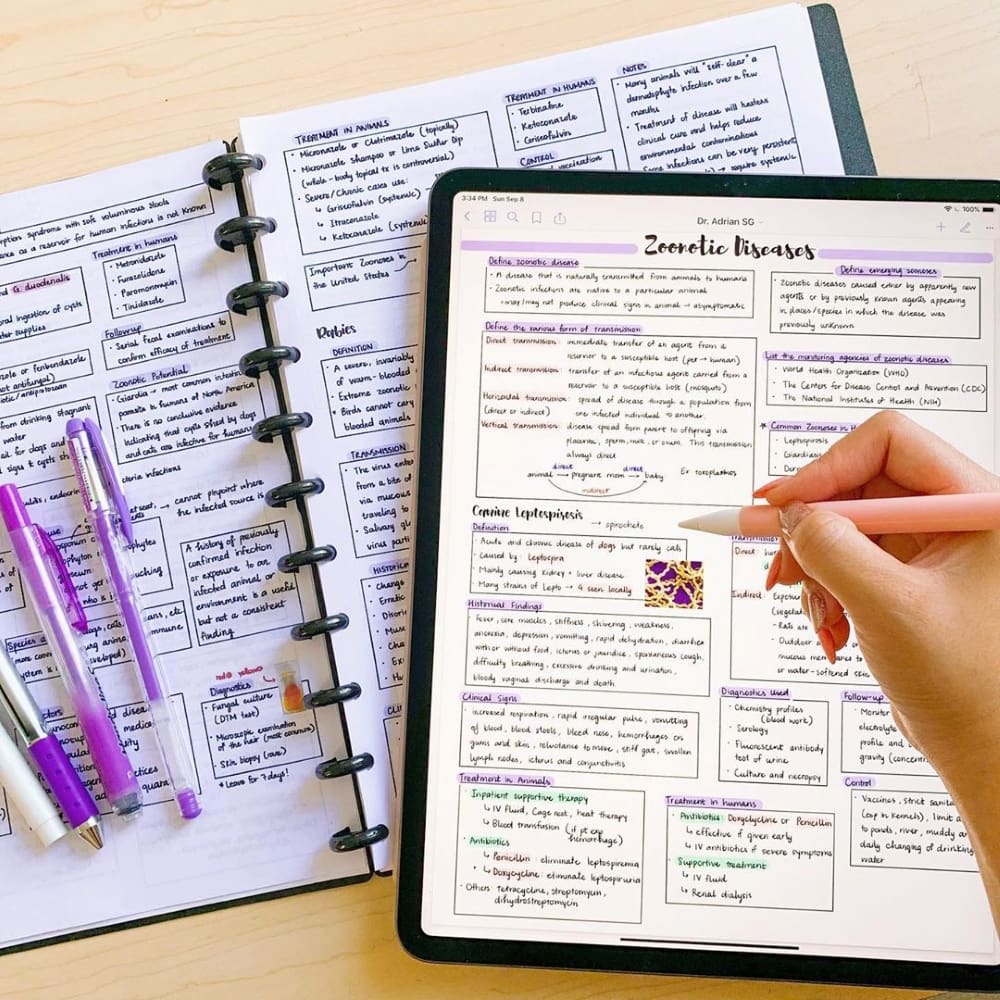Pursuing an MBA can be a life-changing decision. It opens doors to career advancement, leadership roles, and a wealth of knowledge in business strategy and management. However, MBA programs can be challenging, especially when it comes to managing time, absorbing vast amounts of information, and staying organized. If you’re planning to excel in your MBA program, mastering how you study and take notes will be a critical part of your success.
Here’s a practical guide to help you study effectively and get the most out of your MBA journey.
Why Your Study Approach Matters for MBA Success
Studying for an MBA isn’t just about reading textbooks and taking exams; it’s about fully absorbing the material and applying it to real-world business scenarios. As an MBA student, your goal should be to not only pass your courses but also to truly understand the principles and practices of business management so that you can apply them in your career.
If you’re feeling overwhelmed with the workload, you’re not alone. With classes ranging from finance to organizational behavior and marketing, the volume of information can be daunting. However, a smart and organized approach can help you thrive, not just survive, in an MBA program.
Proven Tools and Ideas for Better Study & Note-Taking
To set yourself up for success, it’s important to use strategies and tools that can help you manage the workload, enhance your retention, and improve your productivity. Here are some practical ways to study effectively for your MBA:
1. Create a Study Plan with Time Blocking
MBA programs are intense and fast-paced. Time management is your best friend. Consider creating a weekly study plan using time-blocking techniques. Dedicate specific hours of the day to reading, attending online classes, working on assignments, and reviewing notes.
- Tool Tip: Use apps like Google Calendar or Trello to map out your study sessions. With these tools, you can allocate time to specific tasks, ensuring you cover all course materials without procrastination.
2. Active Note-Taking with Digital Tools
Passive note-taking during classes is not enough. Try active note-taking where you rephrase concepts in your own words, ask questions, and connect the dots between different topics.
- Tool Tip: Apps like Notion, Evernote, or OneNote are excellent for organizing your notes. They allow you to create folders for each subject, and you can even include tags for easier reference later on. You can also attach resources, create to-do lists, and format notes in ways that suit your learning style.
3. Collaborate and Discuss with Classmates
One of the best ways to solidify your understanding is by discussing concepts with others. Engage in study groups or forums where you can debate business case studies, work on projects together, and share different viewpoints.
- Tool Tip: Platforms like Slack or Microsoft Teams are great for organizing virtual study groups. You can create channels for specific topics, share documents, and even host group discussions with your peers.
4. Utilize Online Learning Platforms for Additional Support
Sometimes, your professors or textbooks may not provide enough clarity on complex topics like corporate finance or data analytics. Supplement your learning with online resources.
- Tool Tip: Websites like Coursera, edX, and LinkedIn Learning offer MBA-level courses on specialized topics. These can provide alternative explanations and extra practice material.
5. Practice Self-Testing and Quizzes
Testing yourself regularly will help reinforce your memory and ensure you’re retaining information for the long term. Self-assessment quizzes can also help you identify weak areas that require more focus.
- Tool Tip: Apps like Quizlet or Anki allow you to create flashcards and quizzes. This method is especially helpful for courses with lots of definitions, theories, or formulas.
6. Review and Revise Using Visual Mind Maps
MBA topics can sometimes feel fragmented. Mind mapping is a great tool to visualize how different business concepts relate to each other. Create visual connections between subjects like marketing strategy, financial analysis, and leadership skills to see the bigger picture.
- Tool Tip: Use tools like XMind or MindMeister to create digital mind maps. They allow you to visually connect ideas and see how different MBA subjects are interconnected.
Why These Strategies Will Help You Thrive
These tools and study techniques aren’t just suggestions; they’re proven methods that will help you make the most of your MBA education. Not only will they assist you in organizing and prioritizing your study time, but they’ll also give you a competitive edge when applying your newfound knowledge to the business world. By integrating these strategies into your daily routine, you will retain information better, approach complex business problems with clarity, and emerge as a leader in your chosen industry.
MBA programs are designed to challenge you, but with the right study techniques, you can excel and make a lasting impact on your career.
Start Your MBA Journey and Take the First Step to Success
If you’re ready to take your career to the next level and apply these study techniques to your MBA, there’s no better time to start. Unicaf offers incredible MBA programs that are flexible, affordable, and fully online.
Start your journey with Unicaf’s MBA Program, and enjoy a world-class education that fits your schedule. Sign up today and take the first step towards unlocking your business potential.
Interested? Click here: Apply for Your MBA Now!
With the right mindset, tools, and resources, your MBA experience will be successful, rewarding, and transformative.




